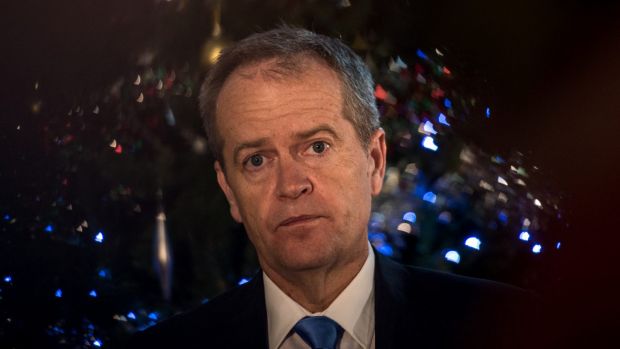Labor is preparing to fire a fresh salvo in the political fight over penalty rates, ahead of a long-awaited decision from the Fair Work Commission on whether to cut Sunday penalties.
Opposition leader Bill Shorten will promise in a speech on Wednesday evening that if the commission decides to reduce Sunday overtime - a move that could affect nearly 800,000 people in the retail and hospital industry - Labor will move to change the law to protect workers' take-home pay.

Mr Shorten's promise stops short of the Greens' pledge, during the 2016 election, to put a floor under penalty rates but enshrines in law workers' overall take-home wage.
The pledge to legislate in a speech at the John Curtin Research Centre in Melbourne goes further than Labor has previously promised.
Crucially, it will give the Labor opposition fresh impetus to campaign over the issue and take the fight to the Turnbull government over what is a key question for tens of thousands of workers, who rely on higher rates on Sundays to pay the bills.
The commission's decision on Sunday rates was due to be handed down last year and is being closely watched by business, employer and union groups.
A decision is now not expected until the end of February at the earliest. The opposition's political strategy depends on the commission's ruling.
By introducing legislation to protect penalty rates - which is unlikely to pass the House, but would likely pass the Senate - Labor will effectively be daring the government to vote against penalty rates, and for a reduction in wages.
Mr Shorten will say in his speech on Wednesday night that Labor understands "penalty rates are not a luxury" but, rather, that they help families put food on the table and petrol in the tank.
"That's why, when I was the Minister for Workplace Relations, Labor changed the modern awards objective so that the Fair Work Commission had to recognise the sacrifice of working 'unsocial, irregular or unpredictable hours, and on weekends or public holidays' when setting awards."
"Yet now, when inequality is at a 75-year high and wages growth is the lowest on record . . . the Turnbull Government has¬†done nothing to protect penalty rates. In fact ‚Äď more than 60 members of the government, from Malcolm Turnbull down, are on the record arguing that penalty rates should be cut - or abolished altogether."
Cutting penalty rates would be un-Australian, Mr Shorten will argue, but legislating their level - a "stupidity" proposed by the Greens - would be "impractical".
Therefore, Labor would not "seek to legislate penalty rates, but if necessary, we would consider changing the rules, which guide the exercise of the commission's discretion. If the commission were to cut penalty rates for hundreds of thousands of already low-paid workers without sufficient compensation - leaving people worse off, Labor would not accept this."
The commission's review of awards in the hospitality, retail, restaurant, fast food, hair and beauty and pharmacy industries takes place every four years and there is a broad expectation in political circles that it could cut rates so that they are reduced to the same, lower, level as Saturday rates.
